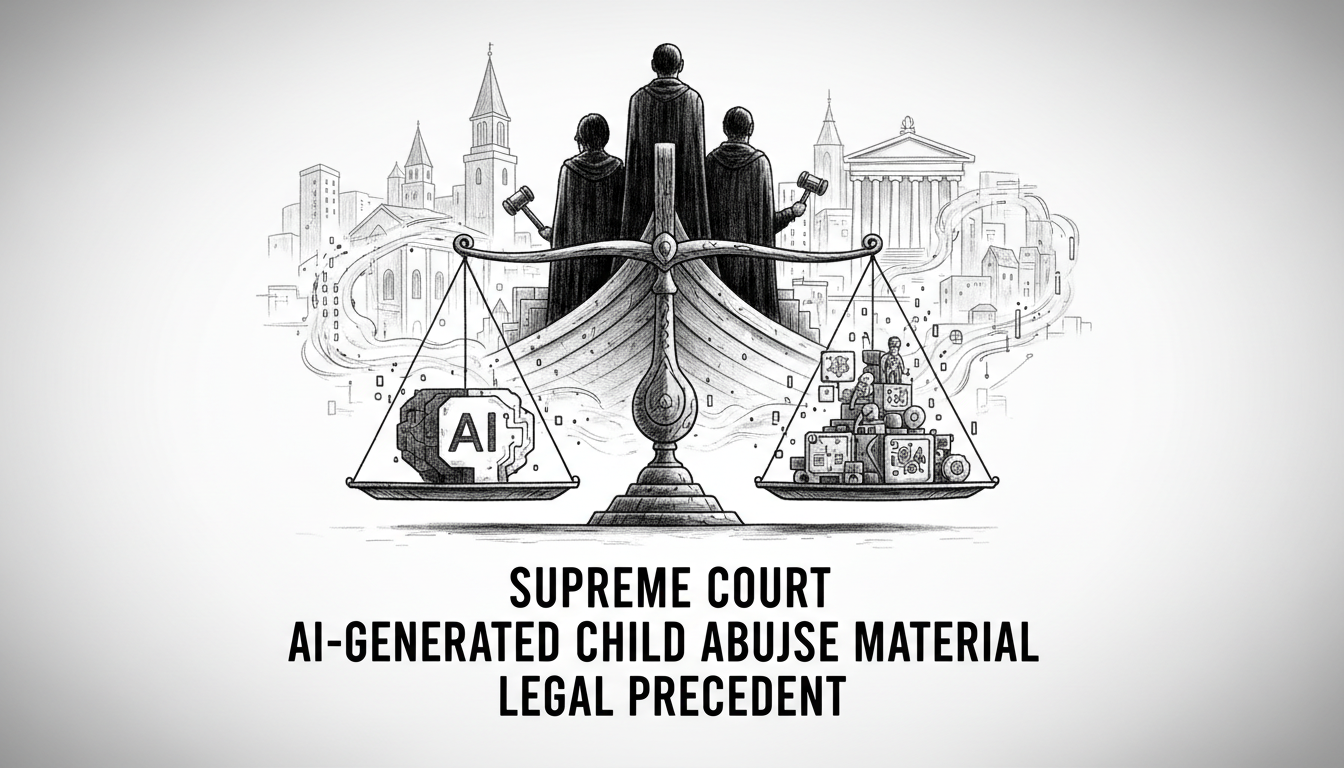Denmark's Supreme Court will determine the appropriate punishment for a man who used artificial intelligence to create thousands of child sexual abuse images. The case represents a landmark legal challenge as courts grapple with how to handle AI-generated illegal content.
The 30-year-old man from Randers produced 36,209 explicit images depicting children using AI technology. He then distributed this material through a subscription service that earned him approximately 25,000 Danish kroner. Customers from around the world accessed the content through this paid scheme.
This legal proceeding marks one of the first major cases involving AI-generated child exploitation material in Denmark. The court's decision could set important precedents for how similar cases are handled across the Nordic region and beyond.
The case began at the District Court in Randers, where the man received a sentence of one year and three months in prison. However, only three months were set to be served immediately, with the remainder suspended. The court initially showed leniency toward the defendant.
The Eastern High Court later reviewed the case and increased the punishment significantly. Judges raised the sentence to one year and six months and made the entire term unconditional. This means the man must serve the full prison time without suspension.
Court officials determined that even though the images featured computer-generated children, the material should be treated as seriously as content involving real victims. The prosecution successfully argued that AI-created abuse material deserves equal legal consideration under Danish law.
During his original trial, the defendant claimed he didn't realize his actions were criminal until police raided his apartment and arrested him. He argued that since the children in the images didn't actually exist, there were no real victims in his view.
Legal experts note this case highlights the challenges courts face with rapidly evolving technology. Denmark's legal system must now determine whether existing laws adequately address crimes involving artificial intelligence and synthetic media.
The Supreme Court's upcoming ruling will clarify how Danish law treats digitally created abuse content. This decision could influence similar cases throughout Scandinavia, where countries share similar legal traditions but may approach new technologies differently.
Nordic countries generally maintain strict laws against child exploitation material. However, the emergence of AI-generated content creates new questions about how to apply these regulations to synthetic media that doesn't involve actual children.
The case also raises important questions about international jurisdiction. Since the material reached subscribers worldwide, it touches on global legal cooperation in combating digital crimes involving emerging technologies.
What punishment properly fits this new category of digital crime? The Supreme Court must balance the need for deterrence against questions about the nature of harm when no real children are involved. Their decision will shape how Nordic legal systems adapt to AI-related offenses.
Court officials have not yet announced when the Supreme Court will hear the case. Legal observers expect the proceedings to attract significant attention from technology law experts and child protection advocates across Europe.

